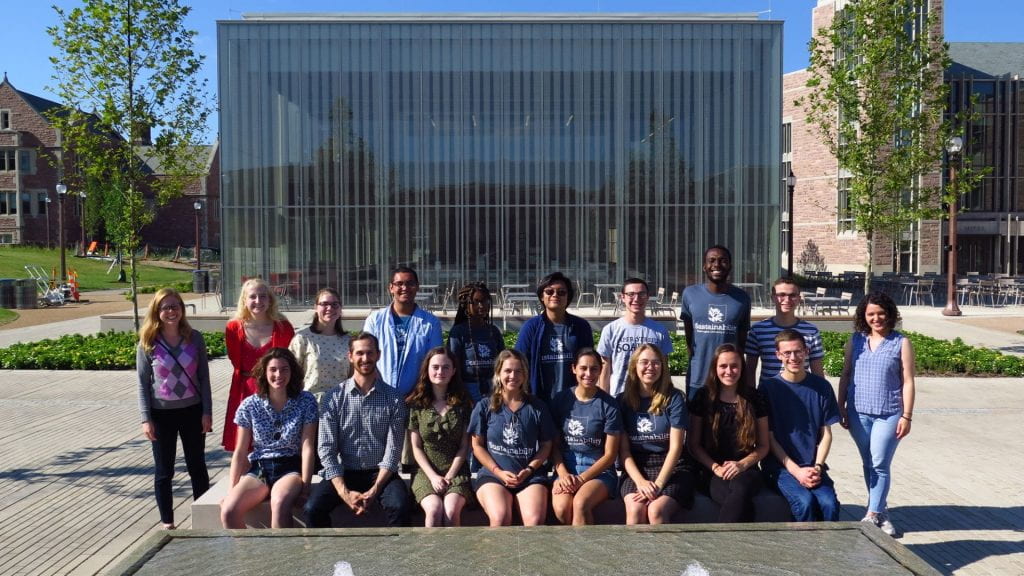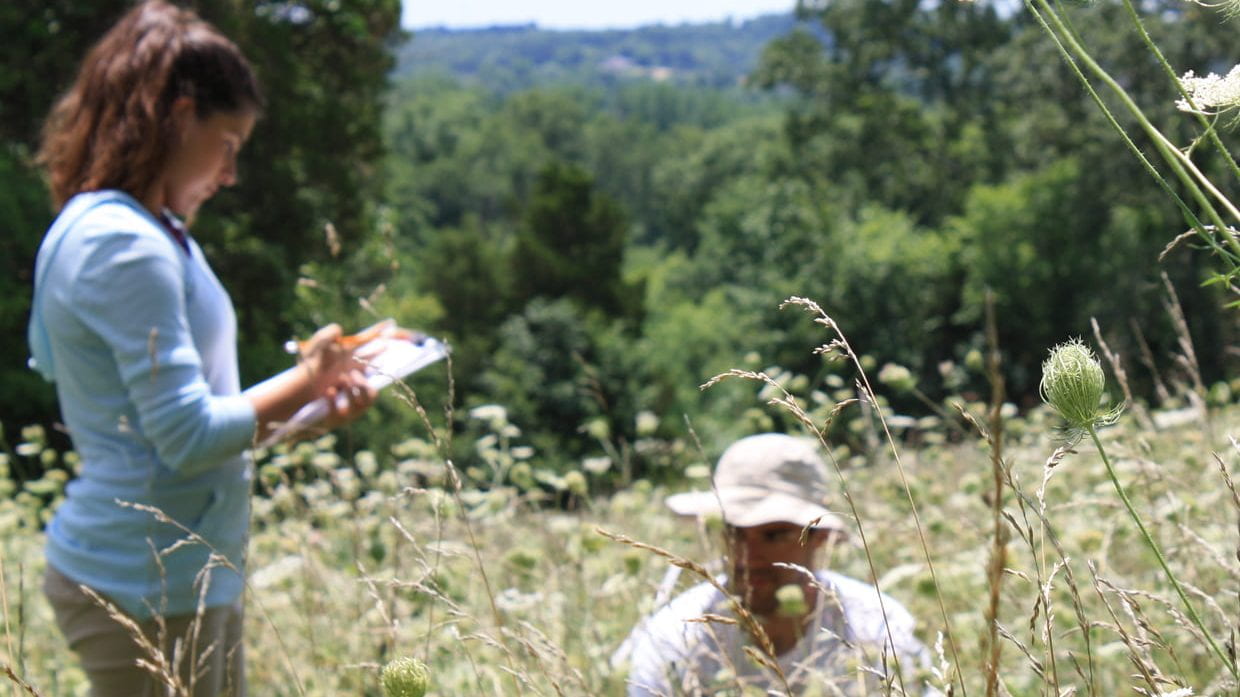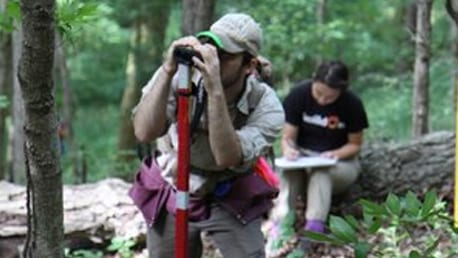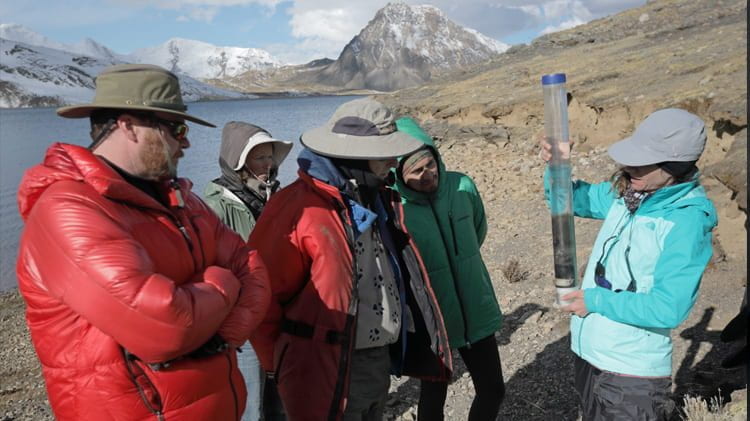
The Environment, Sustainability and Climate Change (ESCC) Internship Program is a multi-stakeholder program that places students in research and project teams, while simultaneously providing professional development and enrichment training.
The program is a partnership between the Office of Sustainability, the Center for the Environment, the Environmental Studies Program, Tyson Research Center, and the Midwest Climate Collaborative.
When a student joins our internship program, they obtain professional experiences outside of the classroom that provide additional skills and learning experiences. In addition, the internships allow students opportunities to interact with alumni and showcase their research and project outcomes. These activities are just a few of the experiences that enhance their effectiveness and strategically position them for a range of careers in the sustainability field.
The ESCC Internship Program grew out of the internship program coordinated by the Office of Sustainability (OOS) since 2011. Today, in conjunction with our university partners we continue to educate and prepare the next generation of leaders and researchers in energy, environment and sustainability.
ESCC Internship Program Partners

Office of Sustainability
The Office of Sustainability (OOS) is a team of staff and students charged with providing the vision, strategy, and leadership for advancing operational and cultural sustainability efforts at WashU.

Environmental Studies
Environmental Studies’ Impact Internship places students within organizations in the St. Louis area, engaging with the environmental issues that impact people’s lives every day.

Tyson Conservation Corps
A field station with laboratories, experimental facilities, and 2,000 acres of land, Tyson provides opportunities for multi-scale research and educational programs.

Center for the Environment
The center is an interdisciplinary hub of environmental research that accelerates research across environmental solutions.